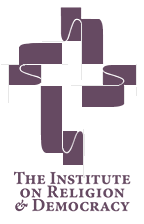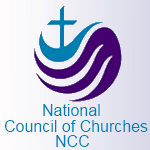
Deprecated: trim(): Passing null to parameter #1 ($string) of type string is deprecated in /home/aoiusa/public_html/wp-content/plugins/sexybookmarks/public.php on line 388
Deprecated: trim(): Passing null to parameter #1 ($string) of type string is deprecated in /home/aoiusa/public_html/wp-content/plugins/sexybookmarks/public.php on line 394
Deprecated: trim(): Passing null to parameter #1 ($string) of type string is deprecated in /home/aoiusa/public_html/wp-content/plugins/sexybookmarks/public.php on line 400
 It’s biting criticism folks — but all true. From the essay:
It’s biting criticism folks — but all true. From the essay:
What I have observed rather consistently (and had this confirmed by other trustworthy observers) is that Eastern Orthodox leaders participating in NCC meetings have shown little to no interest in openly defending Christian values (particularly on life and sexuality) when confronted by the aggressively secular values of Liberalprotestantism, instead choosing to remain meekly passive. This includes what I have observed of those few Eastern Orthodox individuals who have obtained staff or leadership positions in the council.
My response to the full essay (published on Juicy Ecumenicism) blog is reprinted below. The essay is excerpted. Read the full essay on the Juicy Ecumencism blog.

Source: Juicy Ecumenicism | John Lomperis
Christian churches of any sort are right to be careful and thoughtful about the specific causes and organizations to which they do and do not give their public support, as such decisions are important part of what they tell a watching world about their faith and about the triune God. And if a church cannot or will not take the time to examine what a given organization actually does, it makes little sense to bestow a blank-check ecclesial endorsement on the organization’s activities.
So what exactly is accomplished by most of Eastern Orthodoxy in the United States being affiliated with the National Council of Churches (NCC)?
First, we must ask what the effective purpose of the NCC is today. Its member communions include neither the Roman Catholic Church nor more than an increasingly narrow fraction of American Protestants. Given its growing narrowness, penchant for divisive rhetoric, and the rather unloving, disdainful ways in which NCC leaders take pains to distance themselves from other Christians, especially evangelicals, it is clear that the NCC’s noble founding goal of Christian unity is not much of a priority for current NCC leaders.
The NCC has served a purpose in the past with its New Revised Standard Version (NRSV) Bible translation and its annual Yearbook of American and Canadian Churches. But the former is a fait accompli while the latter represents only a tiny fraction of the NCC’s work. So neither of these is the council’s raison d’être.
No, the first and foremost effective purpose of the modern NCC is to promote the values of theologically liberal/heterodox Protestantism and to use the name and resources of churches as a politically convenient tool to promote partisan public-policy agendas, including ones that directly oppose clear Scriptural teachings.
Devout Eastern Orthodox prize their church’s identity as the bearer of what they see as unbroken Christian tradition. Of course, important parts of this tradition’s moral teachings are the basic Christian moral values of valuing the lives of unborn children and honoring the God-given boundaries of sex only within man-woman marriage.
Yet over the years, IRD has documented numerous instances of the NCC defending abortion and/or homosexual practice while demonizing those who stand up for Christian values (at least nominally shared by Eastern Orthodox leaders) on such issues. To say nothing of the over-the-top interpersonal rudeness that NCC staffers have been known to aim at Christians who do not share their liberal Protestant values.
[. . .]
Do Eastern Orthodox leaders really have no problem with the direction and values of a church council of which they are a part being shaped by the input of people who deny the divinity of Christ, while Protestants who actually believe in the Nicene Creed are often disproportionately excluded from such discussions in the NCC? Do Eastern Orthodox leaders really have no problem with their name, through the NCC, being associated with a radical group’s work to promote religious support for abortion and sexual immorality?
If Eastern Orthodox leaders choose to remain silent, this would tragically be consistent with their past behavior.
[. . .]
As any Greek readers may discern from my last name, Eastern Orthodoxy is part of my own family heritage. So I really do sympathize with how important it must have been decades ago for religious leaders of struggling new immigrant communities in an often very intolerant America to be invited to have a seat at the table with leaders of the cultural mainstream. But after a century of an established presence of Eastern Orthodoxy in America, shouldn’t such church leaders want more than merely being seen but not heard?
Greek Orthodox, Russian Orthodox, and other Eastern Orthodox members of the NCC could follow the example of their Antiochian Orthodox brethren by withdrawing their membership in the NCC and pursuing other areas of ecumenical engagement, a move that would be enthusiastically cheered by countless conservative Protestants within and beyond NCC member communions (including this United Methodist writer). Or they could try to use their seats at the table to seek genuinely meaningful dialogue by respectfully yet firmly challenging tablemates who have recently strayed from biblical moral values. At the very least, they could pro-actively make sure that as long as the council uses their names, the NCC will not say or do anything against Eastern Orthodox moral teaching.
[. . .]
But America’s NCC-endorsing Eastern Orthodox leaders (with the notable exception of the Antiochian Orthodox) have, by and large , chosen none of these things. Instead, they choose to continue their path of having no discernible moderating influence on the council (and having little to no apparent interest in doing so) while offering a blank-check endorsement of the NCC’s work, which the NCC’s Liberalprotestant staffers are all too eager to tout as a tool to shield the council from being dismissed as the decaying, ideologically narrow, Liberalprotestant dinosaur that it is.
[. . .]
Of course, I understand that Eastern Orthodox polity is fundamentally different from any Protestant body, and that, to the disappointment of the NCC and its allies like the Unitarian-led Religious Institute, no official Eastern Orthodox body is going to formally vote to, say, endorse abortion. And for what it’s worth, it is now widely agreed that the United Methodist Church is unlikely to change our official, conservative position on homosexuality for at least the foreseeable future.
But in both cases, there is a huge crisis of integrity when the church leadership chooses to shrink back from defending the very church values their offices charge them with promoting, and even passively allow their church’s name to be used to promote agendas directly contrary to the church’s own teachings.
Among U.S. leaders of both the United Methodist Church and Eastern Orthodoxy, there appear to be a number of leaders who love the Lord and accept the authority of Scripture, to whom God has given great opportunities to be witnesses for Christ and Christian truths affirmed in the on-paper position statements of both churches, but who inexplicably choose to bury their talents in the ground.

Read the entire article on the Juicy Ecumenicism blog.

My response:
This is a very fair critique of Orthodox involvement in the NCC. I would only add this clarification: most lay Orthodox simply have no knowledge of the NCC. They wouldn’t know what you were talking about if you mentioned it to them.
Nevertheless, it is still irresponsible for Orthodox leaders to lend the imprimatur of legitimacy to an organization that aggressively champions policies that violate the Orthodox moral tradition. The NCC’s love affair with tyrants is well known to anyone who has followed them over the years. In fact, after Communism fell then NCC General Secretary Joan Campbell Brown issued a collective apology for not doing enough to help the persecuted under Communist oppression.
Lomperis is also correct in his claim that the Orthodox who remained on the NCC have no moderating influence on NCC leadership. There were historical reasons* for Orthodox involvement in the NCC but they have long faded from relevance. The only reasonable explanation for continued involvement is that the leaders don’t mind being used (they trade the Orthodox imprimatur for the false patina of constructive cultural engagement) or they are simply clueless about the contribution that the Orthodox Church could and should make to the renewal of Christendom’s cultural foundations especially in America.
*I wrote an essay for Touchstone Magazine a while back that explains some of the historical reasons for early NCC involement that fits well with Lomperis’ fair and informed critique:
NCC Exit Poll: Why One Orthodox Church Left the National Council of Churches
